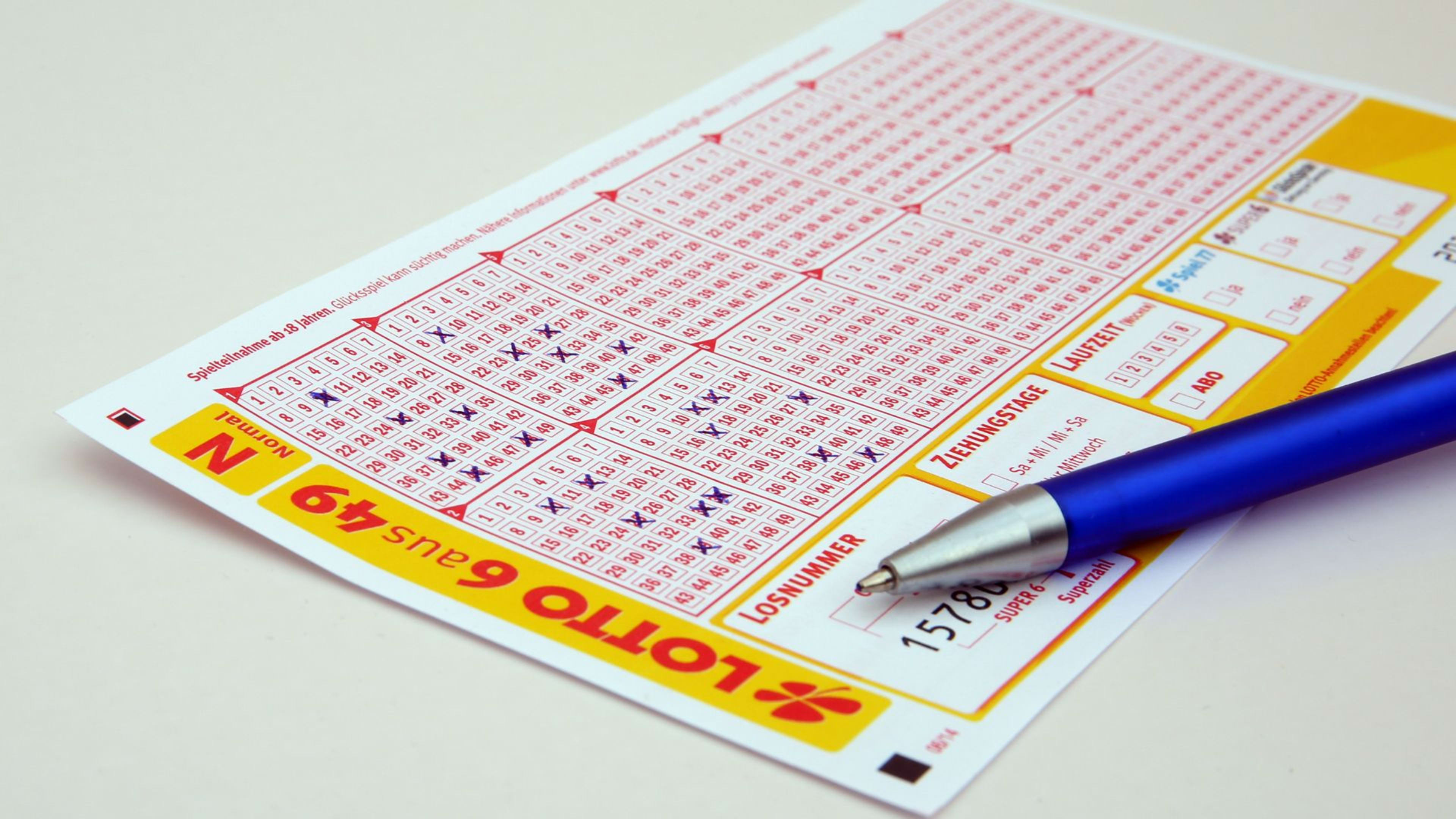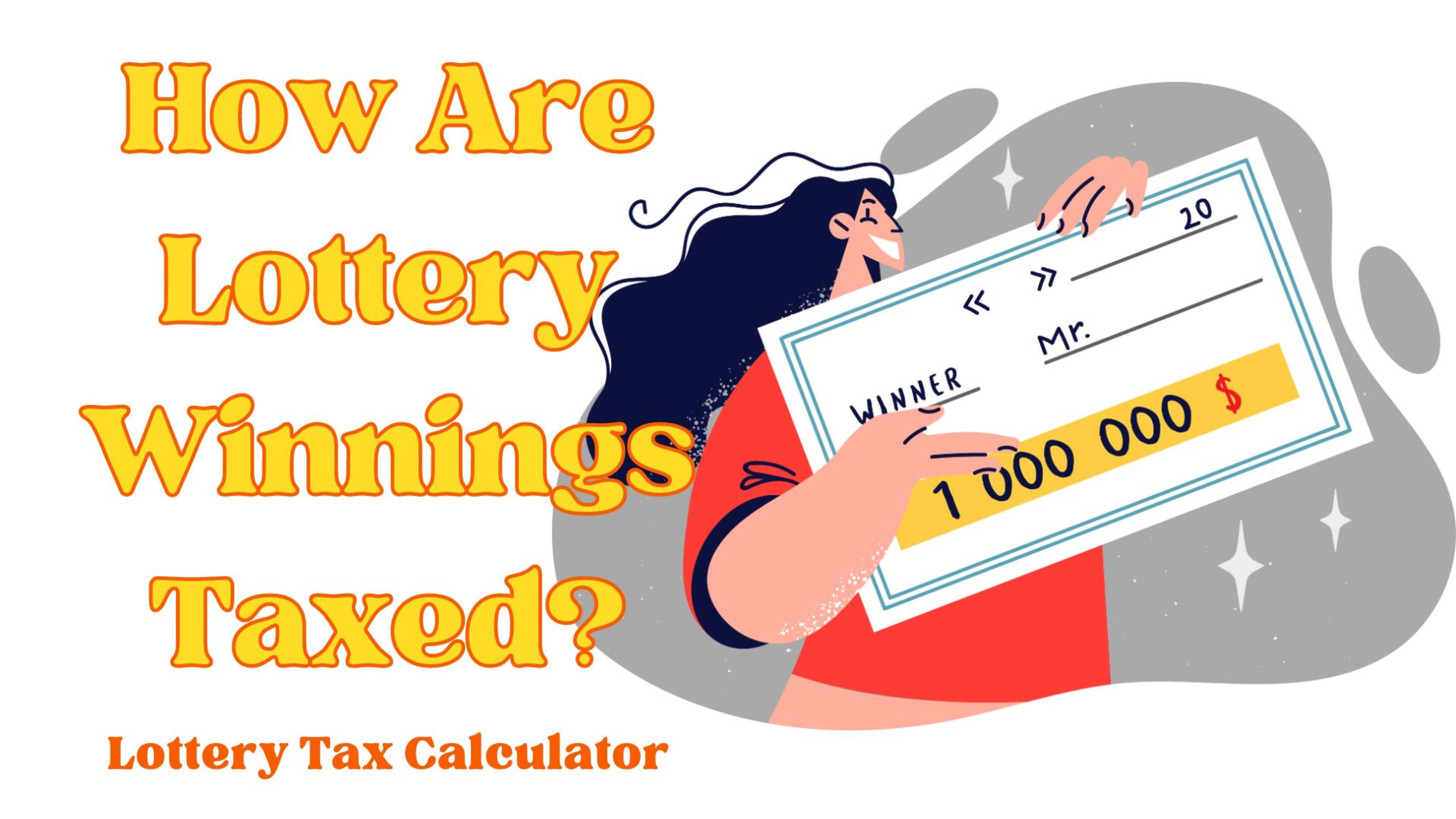Dreaming about winning the lottery often involves visions of yachts, mansions, and endless vacations. But the tax man is also waiting in the wings to take his share. This article aims to demystify the tax obligations associated with lottery winnings in various countries such as the United States, China, Japan, Spain, and the United Kingdom. We'll break down what percentage of your winnings you can expect to part with, offering examples to make things crystal clear.
Taxes on Lottery Winnings in the US
In simple terms, when you win the lottery, the government takes a share of your winnings in the form of taxes. Just like how when you earn money from a job, a part of it goes to the government. This tax comes from both the federal and state governments, and the amount can vary based on where you live and the amount you win.
Federal Income Tax on Lottery Winnings
Firstly, let’s talk about federal taxes. The US government has a fixed tax rate for lottery winnings. This rate is 24% for US citizens and residents with a valid Social Security number. If you do not provide a Social Security number or if you’re a foreigner, the rate jumps to 30%.
So, if you win $1,000,000, the federal government will take $240,000 (24% of $1,000,000) if you're a US citizen or resident with a Social Security number. If not, they'll take $300,000.
State Income Tax on Lottery Winnings
But that's not all. You also have to consider state taxes. Most states in the US will charge a separate tax on lottery winnings. This can range from 0% to over 10%, depending on which state you're in. For instance, if you win the lottery in Florida or Texas, you're in luck because these states do not tax lottery winnings. However, in states like New York or Maryland, you might see a tax rate of up to 8.82% or 8.75%, respectively.
The Lump Sum or Annuity Dilemma
Winners usually have two ways to collect their prize: a one-time lump sum or in installments over several years, known as an annuity. There are tax implications for both.
- Lump Sum: If you choose the lump sum, you receive your winnings immediately, but it’s a smaller amount than the total jackpot. You’ll also pay all the taxes at once, which might push you into a higher tax bracket for that year.
- Annuity: If you go for the annuity option, your winnings are spread over several years (often 20 to 30). Each year, you'll pay taxes on the amount you receive. This might mean a lower overall tax bill, especially if the payments don't push you into a higher tax bracket.
Example: Imagine you win a lottery jackpot of $1,000,000. You have the option to receive the winnings either as a lump sum or as an annuity over 30 years. The federal tax rate is 24%, and your state tax rate is 5%.
| Lump Sum Option: | Annuity Option: |
| Lump Sum Amount: $1,000,000 | Annual Annuity Payment: $1,000,000 / 30 years = $33,333.33 |
| Federal Tax (24%): $240,000 | Federal Tax (24%): $33,333.33 * 24% = $8,000 |
| State Tax (5%): $50,000 | State Tax (5%): $33,333.33 * 5% = $1,667 |
| Total Taxes: $290,000 | Total Taxes per Year: $8,000 + $1,667 = $9,667 |
| Total Taxes over 30 Years: $9,667 * 30 = $290,010 | |
| Net Amount Received: $710,000 | Net Amount Received over 30 Years: $1,000,000 - $290,010 = $709,990 |
In this comparison, we see that over a 30-year period, the total tax paid is similar for both choices. The lump sum gives more money upfront, while the annuity offers a steady income.
It's important to note that the example uses simplified tax rates and calculations for illustration purposes. In reality, tax rates can vary, and additional factors such as deductions, credits, and changing tax laws can influence the final tax liability. Consulting a tax professional is essential to understand the specific tax implications of your lottery winnings based on your circumstances and jurisdiction.
Chinese Tax Laws for Lottery Winnings
When it comes to taxes on lottery winnings in China, the rules are more:
- For winnings below CNY 10,000: Good news! There's no tax. If you win CNY 5,000, you get the full amount. It's like buying an item and getting a 100% discount!
- For winnings above CNY 10,000: Here's where it gets interesting. You will be taxed at a rate of 20% on the amount exceeding CNY 10,000. So, if you win CNY 50,000, the first CNY 10,000 is tax-free. The remaining CNY 40,000 gets a 20% tax.
Example: Imagine you won a prize of CNY 100,000. Here's how you'd calculate your after-tax amount:
- Tax-free amount: CNY 10,000 (because it's below the threshold)
- Taxable amount: CNY 90,000 (the rest of your winnings)
- Tax on CNY 90,000: 20% of CNY 90,000 = CNY 18,000
So, from your CNY 100,000 winnings, you'd take home CNY 82,000 after the tax deduction.

Types of Lotteries and Taxation in Japan
In Japan, there are different types of lotteries, including the Takarakuji and Numbers lotteries. The taxation rules can vary based on the type of lottery and the amount of winnings.
Takarakuji Lotteries: These are the most common lotteries in Japan, known for their big jackpots. When you win in a Takarakuji lottery, your winnings are generally subject to two types of taxes: income tax and local inhabitant's tax.
- Income Tax: The income tax on your winnings is calculated based on a progressive tax rate. This means that the more you win, the higher the percentage of tax you'll need to pay. The tax rate can range from around 5% to 45%, depending on the amount of your winnings.
- Local Inhabitant's Tax: In addition to income tax, you may need to pay local inhabitant's tax, which is determined by your municipality. This tax is calculated based on your income, including your lottery winnings, and the rates can vary from one area to another.
Numbers Lotteries: Numbers lotteries are another form of lottery in Japan, focusing on number-based games. Winnings from Numbers lotteries are generally subject to a flat withholding tax rate of about 20.315%. This tax is deducted from your winnings before you receive the payout.
Example 1: Let's say you win ¥1,000,000 in a Takarakuji lottery. The income tax rate for this amount falls within the 10% bracket. This means you would owe ¥100,000 in income tax. Additionally, if your local inhabitant's tax rate is 5%, you would owe ¥50,000 for this tax. So, your total tax obligation would be ¥150,000.
Example 2: Imagine you win ¥500,000 in a Numbers lottery. The withholding tax rate for Numbers lotteries is around 20.315%. Therefore, the tax deduction from your winnings would be approximately ¥101,575, leaving you with a net payout of ¥398,425.
Taxes on Lottery Prizes in Spain
In Spain, lottery winnings are considered income. This means that the government will take a piece of your winnings as tax. How much tax you pay depends on how much you win. Starting January 1, 2020, any lottery win over €40,000 is subject to a tax rate of 20%.
Example: Imagine you win €100,000. The first €40,000 is tax-free, but you'll have to pay 20% tax on the remaining €60,000.
Here’s the math:
- €100,000 (Total Winnings) - €40,000 (Tax-Free Amount) = €60,000 (Taxable Amount)
- €60,000 x 0.20 (20% Tax Rate) = €12,000 (Tax Due)
So, if you win €100,000, you would take home €88,000 after taxes.
UK Lottery: The Tax-Free Dream
Here's the fantastic news to start with: In the UK, all lottery winnings are tax-free! This means that whether you win £10 or £10 million, you get to keep every penny. Unlike some countries where large winnings face hefty tax deductions, in the UK, the prize amount announced is the prize amount you get.
Example: Imagine winning £5 million in the National Lottery. In the UK, you get to bank all £5 million without any deductions. Meanwhile, in another country, a 20% tax might reduce your take-home to £4 million. Lucky for UK winners, their prize is untouched!
While the initial winnings are tax-free, it's important to remember that once that money is in your bank account, it doesn’t remain entirely untouched by taxes.
- Interest Income: Let's say you win £1 million and deposit it in a bank account. If your bank gives you 3% interest annually, that’s £30,000 extra in a year. This interest will be taxed as per your income tax slab.
- Gifts: If you decide to share your joy and give away a portion of your winnings to friends or family, it could potentially attract inheritance tax if it's above the threshold, and you pass away within seven years of gifting the money.
- Investment Income: If you invest your winnings, any profit or income generated from those investments is likely to be subject to tax. If you invest in a property and then rent it out, the rent you receive will be taxable income.

Do You Pay Taxes on Lottery Winnings in Canada?
In Canada, lottery winnings are not considered regular income, so they are not taxed like your job’s salary would be. Instead, they're seen as a windfall or a one-time gain. That's good news for winners, as they get to pocket the full amount they win.
Example: Imagine you win $1 million in a Canadian lottery. Unlike some countries where you might only get, say, $600,000 after taxes, in Canada, you get the whole $1 million. The entire amount is yours to keep!
So, No Taxes At All?
Well, it's not quite that straightforward. While you don't pay taxes on the actual winnings, any interest or income generated by those winnings in the future is taxable. Think of it like this: the initial money you win is tax-free, but the money that money makes isn’t.
Example: You decide to put your $1 million lottery winnings in a savings account that earns interest. At the end of the year, let’s say you earn $10,000 in interest. That $10,000 is taxable, and you will need to report it on your yearly income tax return.
Winning the lottery is a dream for many, but it’s essential to understand the tax implications that come with it. Both federal and state taxes will take a chunk of your winnings, and you’ll need to decide how you want your payout. While it might seem daunting, with the right knowledge and a little planning, you can navigate these waters with ease and truly enjoy your windfall. And always remember, while it’s tempting to focus on the amount being taken away, you’re still left with a significant amount from your lottery win. Enjoy it responsibly!
FAQ
Do you pay taxes on lottery winnings in Ghana?
Generally, lottery winnings in Ghana are subject to taxation. The specific tax laws can change, so it's always best to consult with a tax professional or refer to the Ghana Revenue Authority (GRA) for the most up-to-date information. For example, if you win GH₵1 million in a national lottery:
- A percentage, determined by the GRA, would be deducted as tax. This could be a significant amount.
- It's crucial to understand the current tax rate to accurately estimate your net winnings.
Are lottery winnings taxable in other African countries?
Tax laws vary significantly across African nations. Some countries may have tax-free lottery winnings, while others may impose substantial taxes. Always check the specific regulations of the country where the lottery is based.
What happens if I win a foreign lottery while in Ghana?
If you win a lottery outside of Ghana, your winnings may still be subject to Ghanaian tax laws, depending on your residency status and the specific regulations. It's essential to consult with a tax advisor to understand your obligations.
Are winnings from sports betting taxable in Ghana?
Yes, winnings from sports betting are generally considered taxable income in Ghana. The tax rate can vary, so it's important to check with the Ghana Revenue Authority (GRA) for the current regulations. Keep records of your betting activities for tax purposes.
Do I need to declare my lottery winnings to the Ghana Revenue Authority?
Yes, it is essential to declare any significant lottery winnings to the Ghana Revenue Authority (GRA). Failure to do so can result in penalties. Consult with a tax professional to ensure you comply with all relevant tax laws.
What are the tax implications for online casino winnings in Ghana?
Winnings from online casinos are generally subject to taxation in Ghana. The specific regulations can vary, so it's crucial to consult with a tax professional or the Ghana Revenue Authority (GRA) for accurate and up-to-date information.
Are there any exemptions on lottery winnings in Ghana?
Certain exemptions may apply to lottery winnings in Ghana, depending on the specific circumstances and the current tax laws. It's advisable to consult with a tax professional or refer to the Ghana Revenue Authority (GRA) for detailed information on any available exemptions.
What is the penalty for not declaring lottery winnings in Ghana?
Failure to declare lottery winnings to the Ghana Revenue Authority (GRA) can result in significant penalties, including fines and potential legal action. It is crucial to comply with all tax regulations to avoid these consequences.
How are lottery winnings taxed if I am a non-resident in Ghana?
If you are a non-resident in Ghana and win the lottery, the tax implications may differ from those for residents. The tax rate could be higher, and there might be different regulations. Consult with a tax professional to understand your specific obligations.
Are there any legal online casinos in Ghana?
Yes, there are legal online casinos in Ghana. It is important to ensure that these casinos are licensed and regulated by the appropriate authorities to guarantee fair play and security. Always gamble responsibly and within your means.
What should I do if I win a large sum of money in the lottery?
If you win a significant amount of money in the lottery, it is advisable to seek professional financial and legal advice. This will help you manage your winnings effectively and ensure you comply with all relevant regulations. Consider consulting with a financial advisor, a lawyer, and a tax professional.
Are there any resources available for responsible gambling in Ghana?
Yes, there are resources available in Ghana to promote responsible gambling. These resources can provide support and guidance for individuals who may be experiencing gambling-related problems. Look for organizations that offer counseling and support services.
How can I verify the legitimacy of an online casino in Ghana?
To verify the legitimacy of an online casino in Ghana, check for licensing information from a recognized regulatory body. Legitimate casinos will display their licensing details prominently on their website. You can also research the casino's reputation and read reviews from other players.















